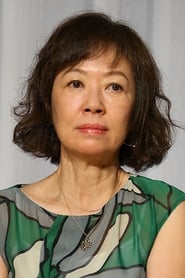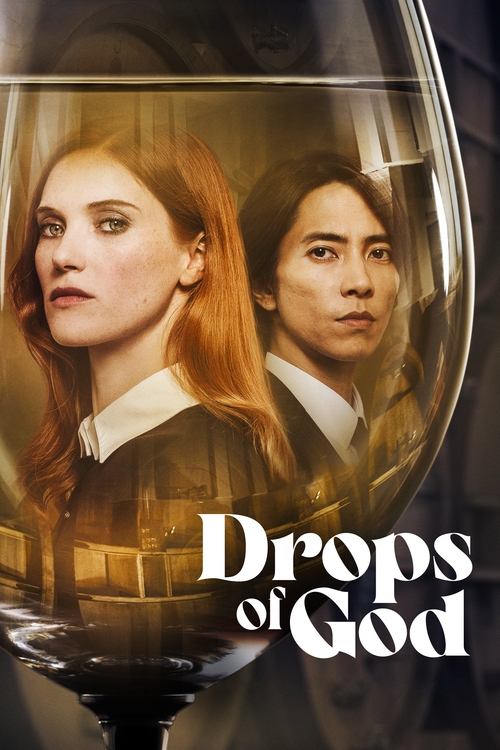
Ask Your Own Question
What is the plot?
The episode opens with Takashi Yanai preparing to leave for war, packing his belongings in his room at the family home. His mother, Tomiko Yanai, watches him from the doorway, her expression tense and conflicted. Takashi finishes packing and approaches her, offering a quiet goodbye. Tomiko hesitates, then suddenly lashes out, hurling harsh words at him about his decision to go to war, accusing him of being selfish and reckless. Takashi flinches visibly but does not respond, his face showing a mix of hurt and resignation.
Takashi turns and walks out of the house, his footsteps heavy on the wooden porch. Tomiko stands frozen in the doorway, her hands clenched at her sides. Outside, Takashi's father, Kiyoshi Yanai, waits by the gate, his face grim. He places a hand on Takashi's shoulder, offering a brief, wordless nod of support. Takashi nods back, then continues down the path toward the main road.
As Takashi walks, flashbacks show earlier moments of tension between him and Tomiko, including arguments about his future and her fears for his safety. These memories are intercut with scenes of Takashi's younger sister, Chihiro, watching silently from her bedroom window, her eyes filled with worry.
Takashi reaches the train station, where other young men are boarding the train for deployment. He boards without looking back. Inside the train, he sits by the window, staring out as the landscape begins to move. The camera lingers on his face, showing the weight of his decision and the emotional toll of his mother's words.
Meanwhile, back at home, Tomiko sits alone in the kitchen, her hands trembling as she clutches a cup of tea. She stares at a photograph of Takashi as a child, her expression shifting from anger to regret. Her husband, Kiyoshi, enters and gently places a hand on her shoulder. Tomiko does not look up, but her shoulders begin to shake as she silently cries.
The episode ends with Takashi's train disappearing into the distance, and Tomiko still sitting at the kitchen table, the photograph in her hands. The final shot holds on her face, showing the deep sorrow and unresolved conflict she carries.
Related Titles
Browse All Titles →
What is the ending?
The ending of Anpan Season 1, Episode 49, concludes with a heartfelt and hopeful resolution to the long-standing love story between Meiko and Kentaro, culminating in their spring wedding under cherry blossoms. The episode closes on a bright note, symbolizing the continuation of their love and future together.
Expanded narrative of the ending scene by scene:
The episode opens with a tense yet warm atmosphere, reflecting the culmination of many trials faced by the characters throughout the series. Nobu Asada (played by Mio Imada) is shown grappling with her feelings, particularly regret for not expressing her true emotions to Jiro before he departs. This internal conflict sets a reflective tone for the episode.
As the story progresses, the focus shifts to the central couple, Meiko and Kentaro, whose decade-long relationship has been a core thread of the series. Their journey is portrayed with scenes of mutual support and emotional growth, highlighting the strength of their bond despite past hardships. The narrative carefully depicts their walk together, hand in hand, symbolizing their readiness to face an unknown future united.
The climax is marked by a beautiful spring wedding scene, with cherry blossoms gently falling around them. This visual motif underscores themes of renewal and hope. The wedding is not just a celebration of their love but also a metaphor for new beginnings after years of struggle and perseverance.
Throughout the episode, there are poignant moments involving other main characters. For example, Nobu's moment of vulnerability, where she admits feeling weak without her support system, resonates deeply. Her friends and family respond with encouragement, reinforcing the theme of communal strength and resilience.
Tomiko Yanai (Nanako Matsushima), Takashi Yanai's mother, delivers a harsh but emotionally charged farewell to her son before he leaves for war, adding a layer of complexity to the family dynamics and the personal costs of conflict.
By the end of the episode, the narrative leaves viewers with a sense of closure for the main characters:
- Meiko and Kentaro: United in marriage, stepping into their future together with hope and commitment.
- Nobu Asada: Having confronted her inner doubts, she finds renewed strength through her relationships.
- Takashi Yanai: Faces the uncertainty of war, supported by his family despite difficult partings.
- Tomiko Yanai: Her tough love reflects the pain and protective instincts of a mother in wartime.
The final scenes emphasize the ongoing nature of life and love, with narration suggesting that the characters' stories continue beyond the screen. The episode closes with a warm, bright light flooding the screen, symbolizing optimism and the enduring power of human connection.
This detailed ending encapsulates the series' themes of love, resilience, and hope amidst adversity, providing a satisfying and emotionally rich conclusion to Season 1.
Is there a post-credit scene?
For the TV show "Anpan," Season 1, Episode 49 (2025), there is no specific information available in the search results indicating the presence of a post-credit scene for this particular episode. The detailed coverage and summaries focus mainly on the final episode (Episode 130) and special episodes, which include emotional and narrative conclusions, but no mention is made of post-credit scenes in earlier episodes such as Episode 49.
Therefore, based on the available data, Episode 49 of "Anpan" does not have a documented post-credit scene.
What specific challenges or conflicts does Nobu Asada face in Episode 49 of Anpan Season 1?
In Episode 49, Nobu Asada speaks brave words to a worried student whose brother has received a red card, indicating a conflict involving school discipline and emotional support. Nobu's role involves addressing the student's concerns and providing encouragement during this difficult situation.
How does the character Jiro's situation influence the plot or other characters in Episode 49?
Jiro, a character mentioned in Episode 49, is involved in a subplot where his receiving a red card causes worry among other characters, particularly a student who is comforted by Nobu Asada. This situation adds emotional depth and tension to the episode's narrative.
What are the key character dynamics or relationships highlighted in Episode 49 of Anpan Season 1?
Episode 49 highlights the supportive relationship between Nobu Asada and the worried student, showcasing themes of bravery and empathy. The episode also touches on family dynamics through the mention of Jiro and his brother, which influences the emotional tone of the story.
Are there any notable new characters or character developments introduced in Episode 49?
While no entirely new characters are explicitly noted for Episode 49, the episode focuses on the development of existing characters such as Nobu Asada, who demonstrates courage and compassion, and Jiro, whose disciplinary issue impacts the storyline and character interactions.
What specific plot events or scenes in Episode 49 significantly impact the story progression?
A significant plot event in Episode 49 is Nobu Asada's interaction with the worried student, where Nobu's brave words help alleviate the student's anxiety about Jiro's red card. This scene is pivotal in advancing the episode's emotional narrative and character development.
Is this family friendly?
Anpan, Season 1, Episode 49 is generally family friendly, consistent with the tone of the series as a whole. The show is designed for broad audiences, including children and multiple generations, and emphasizes themes of love, courage, and resilience.
That said, as with many dramas inspired by real-life events, there may be moments that sensitive viewers or young children could find mildly upsetting. These could include brief depictions of characters experiencing sadness, frustration, or moments of personal struggle, such as expressions of loneliness or concern about family matters. There are no graphic scenes, violence, or explicit content, but emotional scenes involving separation, illness, or personal setbacks may occur, presented in a gentle and age-appropriate manner.
Overall, the episode maintains a hopeful and uplifting atmosphere, but parents may wish to be aware that some emotional moments could prompt questions or require reassurance for younger or sensitive viewers.


































